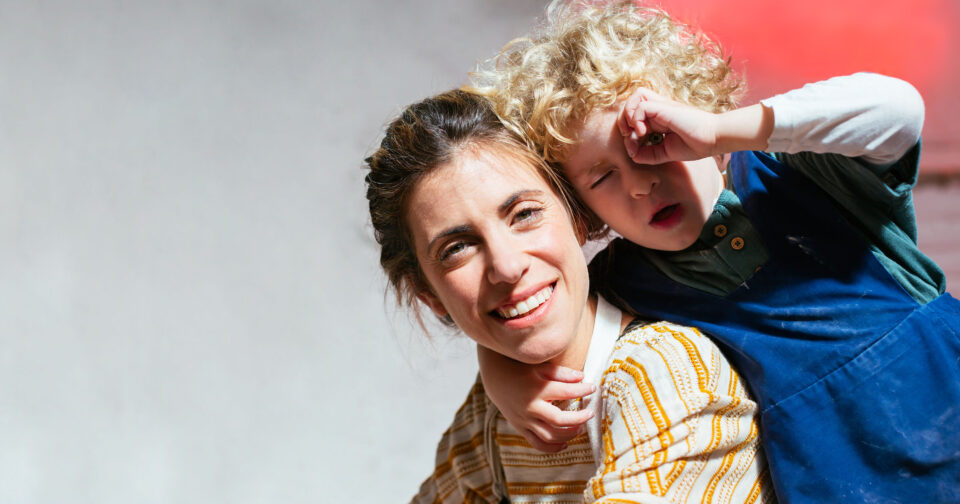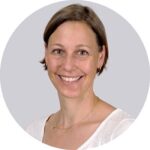-
Pain-free movement
-
Rheumatology expert Caroline Ospelt does research into the molecular mechanisms of arthritis at University Hospital Zurich. She wants to lay the basis for targeted therapies by gaining a better understanding of the inflammation reaction in different joints.
-
 “I hope I’ll soon be able to pick up my son again.”
“I hope I’ll soon be able to pick up my son again.”Around two million people in Switzerland suffer from arthritis, in other words chronic inflammation of the joints. Particularly widespread is rheumatoid arthritis, which afflicts three times as many women as men – often at a relatively early age. Forty-two-year-old Monika Widmer* is one of them. The fact that she finds it painful to pick up her three-year-old son causes her a lot of suffering. The rheumatologist treating her has tried several different therapies to help her. While her hands are no longer inflamed, she still has problems with her shoulders.
“So far we’ve treated all rheumatoid arthritis patients more or less the same way,” explains Caroline Ospelt, a group leader at the Center of Experimental Rheumatology at University Hospital Zurich (USZ). But not all patients respond equally well or quickly. So now Ospelt has adopted the hypothesis that inflammations to the different joints emerge in different ways. She intends to look into this in more detail.
Ospelt and her team want to understand why some joints are affected and others are not, and why some patients respond to a particular therapy better than others. To do this the researchers are diving deep into molecular biology, going right back to the embryonic development of individual joints. “Each joint has a different function, and for this reason probably differs from other joints early on in terms of its development at the cellular level.” So far these relationships have been explored only in rudimentary form – and the cause of rheumatoid arthritis has remained unexplained. What’s clear is that genetic factors, plus smoking, play a role in the development of the disease.
The work of the rheumatology expert and her team is supported by a donation from the Iten Kohaut Foundation to the USZ Foundation. In the course of their two-year project they hope to be able to shed more light on the inflammation reaction in different joints. “If we succeed, we’ll create the basis for joint-specific and individual therapeutic approaches.” For patients like Monika Widmer, freedom from pain would be a huge gain in terms of quality of life, and her son would be able to enjoy having his mum pick him up again.
*anonymized/symbolic image
100% financed

-
-
Project management
-
-

Professor Caroline Ospelt
Group leader
Center of Experimental Rheumatology
University Hospital Zurich
-
-
Supporting partner
-
-
Iten Kohaut Foundation
